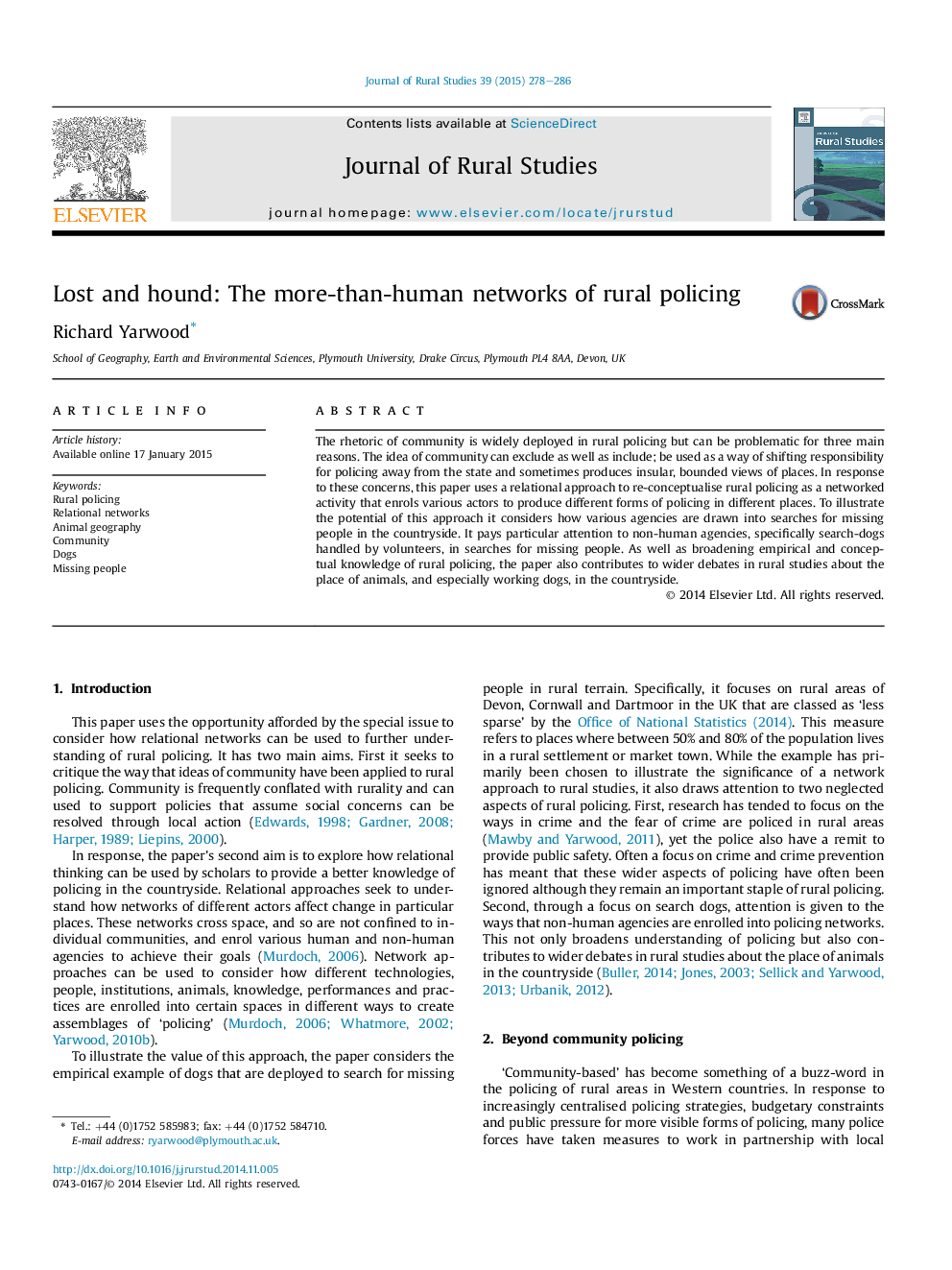| Article ID | Journal | Published Year | Pages | File Type |
|---|---|---|---|---|
| 6545690 | Journal of Rural Studies | 2015 | 9 Pages |
Abstract
The rhetoric of community is widely deployed in rural policing but can be problematic for three main reasons. The idea of community can exclude as well as include; be used as a way of shifting responsibility for policing away from the state and sometimes produces insular, bounded views of places. In response to these concerns, this paper uses a relational approach to re-conceptualise rural policing as a networked activity that enrols various actors to produce different forms of policing in different places. To illustrate the potential of this approach it considers how various agencies are drawn into searches for missing people in the countryside. It pays particular attention to non-human agencies, specifically search-dogs handled by volunteers, in searches for missing people. As well as broadening empirical and conceptual knowledge of rural policing, the paper also contributes to wider debates in rural studies about the place of animals, and especially working dogs, in the countryside.
Keywords
Related Topics
Life Sciences
Agricultural and Biological Sciences
Forestry
Authors
Richard Yarwood,
